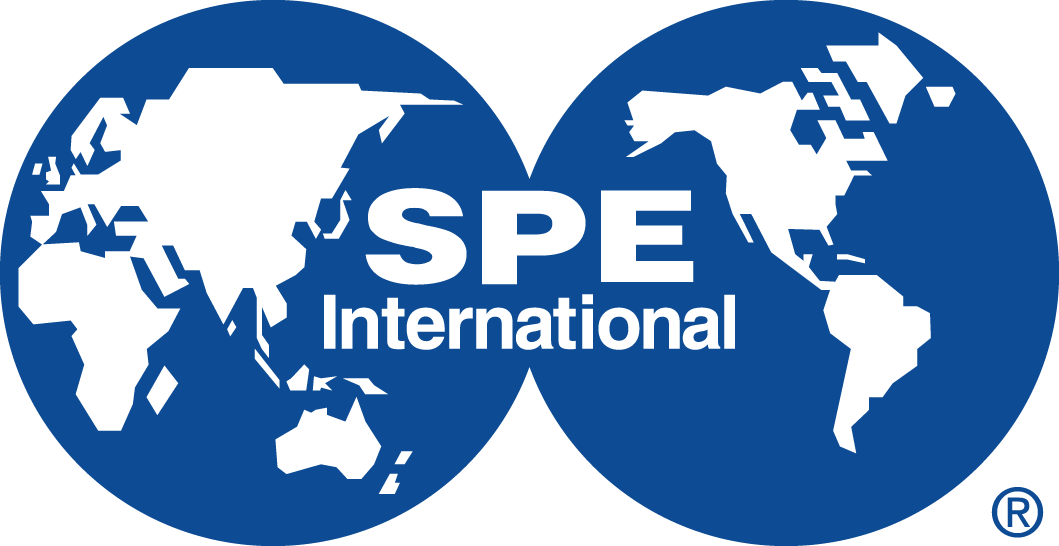Technical Session
-
Indera Kayangan Ballroom, Level 4, Main Atrium Building
-
- Technical Session
Indera Kayangan Ballroom, Level 4, Main Atrium BuildingSession Managers: Muhamad Zaki Amir Hussein, ENEOS Xplora Malaysia Limited; Yau Wai Loo, Expro
As fields mature and wells approach the end of their economic life, solutions are required to maximize value by optimising recovery, reducing cost, managing risk and preparing for safe and efficient abandonment. Late Life Well Management is about proactive management of decline phase while ensuring asset integrity, environmental compliance and shareholder value.
Discussion Leaders:- Erosion Management Framework for Mature Assets: Protecting Volume by Safeguarding Equipment Reliability by Rajaletchemy Thiagarajan, PETRONAS Carigali Sdn Bhd
- Accelerating Production and Reducing Risk: A Novel CT-Based Workflow in a Sand-Prone Offshore Gas Field by Mohd Nasarudin Mohd Ripain, Carigali Hess Operating Company
- Advanced Petrophysical Workflows to De-risk Behind Casing Opportunities (BCO) and Maximise Late-Life Well Value by Mukesh Gupta, PETRONAS
-
-
Atrium Cafe, Main Atrium – Level 3
-
-
- Panel Session
Indera Kayangan Ballroom, Level 4, Main Atrium BuildingSession Moderators: Loo Yau Wai, Expro; Nur Baizurin Zulkanain, Halliburton; Caleb Jia Lih Siew, Hibiscus Malaysia
This session will examine how organisations can unlock value by embracing innovation, advancing system integration, and embedding sustainability within core strategies. Industry leaders will share practical insights into building resilient, future-ready operations. -
-
- Welcome Remarks and Keynote Address
Indera Kayangan Ballroom, Level 4, Main Atrium Building -
Atrium Cafe, Main Atrium – Level 3
-
-
Atrium Cafe, Main Atrium – Level 3
-
Indera Kayangan Ballroom, Level 4, Main Atrium Building
-
-
- Technical Session
Indera Kayangan Ballroom, Level 4, Main Atrium BuildingSession Managers: Muhamad Zaki Amir Hussein, ENEOS Xplora Malaysia Limited; Yau Wai Loo, Expro
As fields mature and wells approach the end of their economic life, solutions are required to maximize value by optimising recovery, reducing cost, managing risk and preparing for safe and efficient abandonment. Late Life Well Management is about proactive management of decline phase while ensuring asset integrity, environmental compliance and shareholder value.
Discussion Leaders:- WRFM Approach for Late Life Asset Management and Strategy by Amr Zeidan, Expro
- From One-Off Tool to Operational Standard: Embedding Geochemical Fingerprinting into Routine Surveillance for Smarter WRFM in Mature Fields by Izzatun Mohamad, Brunei Shell Petroleum
- Lookback Analysis on Immiscible Water Alternating Gas (IWAG) Injection Performance: A Case Study in an Offshore Field in East Malaysia by Lim Han Liang (Jason), PETRONAS
-
- Technical Session
Indera Kayangan Ballroom, Level 4, Main Atrium BuildingSession Managers: Mohammad Amirul Thaqif Haji Mayassin, Brunei Shell Petroleum; Salwa Khair Md Tarif, Brunei Shell Petroleum; Basel Said, Petroleum Development Oman
Optimising oil and gas production requires a comprehensive approach that integrates production system modelling, simulation, and data-driven Well, Reservoir & Facility Management (WRFM) strategies. In an era of increasing operational complexity, leveraging digital transformation and predictive analytics is key to enhancing efficiency, maximising recovery, and reducing downtime. This session will explore cutting-edge methodologies for modelling production systems, simulating field performance, and applying real-time data analytics to WRFM workflows. Participants will gain insights into how digital technologies, AI, and advanced simulations are reshaping production optimisation strategies. Designed for both surface and subsurface professionals and asset managers, this workshop will provide practical insights into how to utilise simulation models and digital data efficiently for decision-making and to unlock new opportunities in oil and gas production.
Key discussion points include:
-
End-to-end systems that include reservoir understanding, wells, and surface facility set-up
-
Production system modelling and simulation – optimising inflow and outflow dynamics for improved performance
-
Integrating physics-based and automated models for accurate forecasting and decision-making
-
Transforming WRFM with real-time data analytics and visual representation – predictive maintenance, anomaly detection, and production optimisation
-
Case studies on successful digital transformation initiatives in production and WRFM strategies
-
Best practices for using automation and AI in production monitoring and optimisation
Discussion Leaders:
- A Comprehensive Study of Pressure Dynamics of Malaysia's Gas Network for Integration of Greenfield Development by Sukrut Shridhar Kulkarni, PETRONAS
- Application Data Driven for Gaslift Optimisation of A Field, Offshore Vietnam by Dinh Duc Huy, Vietnam Petroleum Institute
- Don’t Skip the Baseline: Strategic Value of Early Geochemical Fluid Fingerprinting for Long-Term WRFM Success by Faiz Abdullah, Brunei Shell Petroleum
- Boosting Recovery and Cutting Energy Use to Minimize CO2 Emissions in a Mature Offshore Field by Optimising Water Flooding in a Complex Reservoir: A Case Study by Mostafa Mahmoud Tawfik Kortam, Petrobel
- Local Lift Gas Supply from Gas Wells in a Normally Unmanned Platform: Integrating Smart Functionality, Dynamic and Seismic Data Insights to Protect Oil Production by Zulfadli Ahmad, Brunei Shell Petroleum
-
- Technical Session
Indera Kayangan Ballroom, Level 4, Main Atrium BuildingSession Managers: Yau Wai Loo, Expro; Sharif Salahudin, Sutera Energy; Ahdiat (Adi) Ahmad, Weatherford
Well and asset integrity are critical components in the lifecycle management of oil and gas operations, ensuring the safe, efficient, and sustainable extraction of resources. This session discusses the principles and practices that underpin well and asset integrity, emphasizing the importance of risk management, regulatory compliance, and technological advancements. Well integrity focuses on the containment of fluids within a wellbore system, requiring robust design, construction, and monitoring protocols to prevent leaks and environmental contamination. Asset integrity, on the other hand, involves the holistic management of physical assets, ensuring they perform their intended function throughout their lifecycle while minimizing hazards to personnel and the environment.
We explore the integration of advanced monitoring technologies, such as real-time data analytics and predictive modeling, which enhance the detection of anomalies and facilitate timely interventions. Additionally, we address the impact of aging infrastructures, maintenance strategies, and the role of an integrity management system in optimizing asset performance. Case studies illustrate successful implementations of integrity management practices that have led to increased operational efficiency, reduced downtime, and enhanced safety outcomes. Ultimately, this session advocates for a proactive approach to well and asset integrity, aligning organizational goals with industry best practices to foster a culture of safety and sustainability in the petroleum sector.
Discussion Leaders:- Ultilising Advance Diagnostics (Spectral Noise Logging) to Unlock Dynamic Downhole Situation and Maintaining Well Intergrity by Seow Sheng Qin, TGT Diagnostics
- Restoring Integrity, Reinstating Production: An Innovative High-Pressure Jetting Solution for TRSSSV Functionality Restoration by Kyle Mckenzie, Expro
- An Innovative and Versatile Annulus Intervention Solution for Remediation of Sustained Casing Pressure by Neil Wilson, Expro
- Resolving the Leak between Master Valve and Flange in Area-Q by Hilal Abdullah Nasser Al Rusheidi, Petroleum Development Oman
-
- Technical Session
Indera Kayangan Ballroom, Level 4, Main Atrium BuildingSession Managers: Jason Kok, Innovateq; Charles Bonaventure, Weatherford
Enhancing production and ensuring well integrity requires the implementation of innovative gas lift solutions and other artificial lift methods that address the specific challenges of existing assets. As easily accessible reserves become scarce, operators and service companies are focusing on optimizing mature fields by leveraging advanced technologies to boost production and maintain well integrity. This workshop will delve into state-of-the-art gas lift technologies and techniques designed to manage fluctuating reservoir pressures, aging infrastructure, and common integrity issues such as corrosion and mechanical failures. By incorporating real-time monitoring, remote control, predictive maintenance, and data-driven decision-making, these advancements enhance operational resilience and efficiency.
The discussion will share experiences in overcoming challenges, best practices, and lessons learned to achieve higher success rates in optimizing gas lift operations and ensuring well integrity, ultimately contributing to the resilience and efficiency of existing assets.
Discussion Leaders:- Reviving Mature Gas Wells: A Strategic Approach to Tackle Deliquification and Deferred Production Recovery by Nigel Brian Chin Chee Wui, Brunei Shell Petroleum
- Retrofit Thru Tubing Deep Gas-Lift System Successfully Enhances Hydrocarbon Production by More Than 200% in Offshore East Java by Ismael Betancourt, Weatherford
- Foam-Assisted Gas Lift Optimization: A Cost-Effective Production Enhancement Solution for Mature Offshore Fields by Md Najib Latif, Brunei Shell Petroleum
- The Evolution of the ESP Completion Design in Field X: A Journey of Continuous Improvements by Fadzlan Suhaimin, Brunei Shell Petroleum
-
- Technical Session
Indera Kayangan Ballroom, Level 4, Main Atrium BuildingSession Managers: Mohammad Amirul Thaqif Haji Mayassin, Brunei Shell Petroleum; Frazer Hilis, InflowControl AS
The oil and gas industry spends billions annually dealing with unwanted water production. This includes costs for separating, treating, and disposing of produced water, as well as potential impacts on well performance and lifespan. Water production poses significant challenges in oil and gas operations, leading to reduced hydrocarbon recovery, increased operational costs, and environmental concerns. Effective Water Zone Shutoff (WZO) strategies are essential for managing water inflow, improving reservoir performance, and extending well lifespan. This in-depth workshop will explore the latest techniques and technologies for identifying, diagnosing, and implementing water shutoff solutions in conventional and unconventional reservoirs. Attendees will gain insights into mechanical, chemical, and reservoir engineering approaches for controlling unwanted water production while maintaining hydrocarbon flow.
Key topics covered include:
- Identifying and diagnosing water breakthrough using logging, tracer, and production data analysis
- Mechanical shutoff techniques, including packers, cement plugs, and gel treatments
- Chemical water shutoff solutions, such as polymer gels, relative permeability modifiers (RPMs), and crosslinked systems
- Reservoir-based strategies for optimizing well placement and completion design
- Case studies and field applications showcasing successful water shutoff interventions
- Regulatory and economic considerations for implementing water shutoff programs
Discussion Leaders:- Enhancing Reservoir Management with Autonomous InflowControl Valve (AICV) Technology; A Sustainable Alternative to Hydraulic Inflow Control Valves (ICV) by Ahmed Al-Fatlawi, InflowControl
- Diagnosis of Water Zones via Time-Lapse Geochemical Surveillance for Optimising Oil Recovery in Field M by Ireni Sufinah Ali Rahman, Brunei Shell Petroleum
- Slickline DFOS Addressing SRT Measurement Challenges for FIP in Depleted Reservoir by Riko Mudayana, Expro
- Bridging Boundaries: Synergizing Conformance, Water Shut-Off, and Polymer Flooding for Enhanced Hydrocarbon Recovery by Steve Koumouris, SNF
-
- Technical Session
Indera Kayangan Ballroom, Level 4, Main Atrium BuildingSession Managers: Oranat Suwannakarn, Chevron Thailand E&P; Chen Nyap Ho, Sabah Shell Petroleum Co.; Sharif Salahudin, Sutera Energy
Sand production defines as the flow of formation solids into the wellbore along with the formation fluid. It is a common problem in the oil and gas industry, particularly in brown field developments. Sand production causes several issues, including a reduction in hydrocarbon recovery efficiency due to sand plugging in the reservoir, and damage to the production system from downhole equipment to surface equipment. This damage increases operational costs due to frequent maintenance and results in significant production loss. Additionally, sand erosion increases the risk of fluid leaks or, even worse, spills, which compromise personnel safety and have environmental impacts. An effective sand management process is critical for maintaining well integrity and operational safety, optimizing production, and minimizing operational costs.
This workshop session will explore the topics below but not limit to:
- Sand Control Techniques And Best Practices (including sand control failure remediation/retrofit sand control)
- Latest Innovative Technology In Sand Management (including surveillance technique, data acquisition)
- Geomechanics Modeling For Monitoring And Prediction
- Case Studies From Real Work Experience
Discussion Leaders:- Surface and Subsurface Technologies for Sand Management Strategy in Marginal and Matured Fields by Amr Ahmed Aly Zeidan, Expro
- Thru-Tubing Gravel Packing (TTGP): Another Tool in the WRFM Toolbox for Sand Producing Wells by Sharifudin Salahudin, Sutera Energy
- Holistic Sand Management in Mature Oil and Gas Reservoirs with Advanced Digital Modeling - Case Study by Abhishek Gupta, Greenfield Oil and Trading Services
- Remedial Sand Control Application: A Case Study of Boron-diffused Erosional Resistant Through-tubing Sand Screen Installation in a Mature Oil Field at Offshore Terengganu, Malaysia by Muhamad Ridzuan Shaedin, PETRONAS Carigali Sdn Bhd


)
)

)
)
)
)